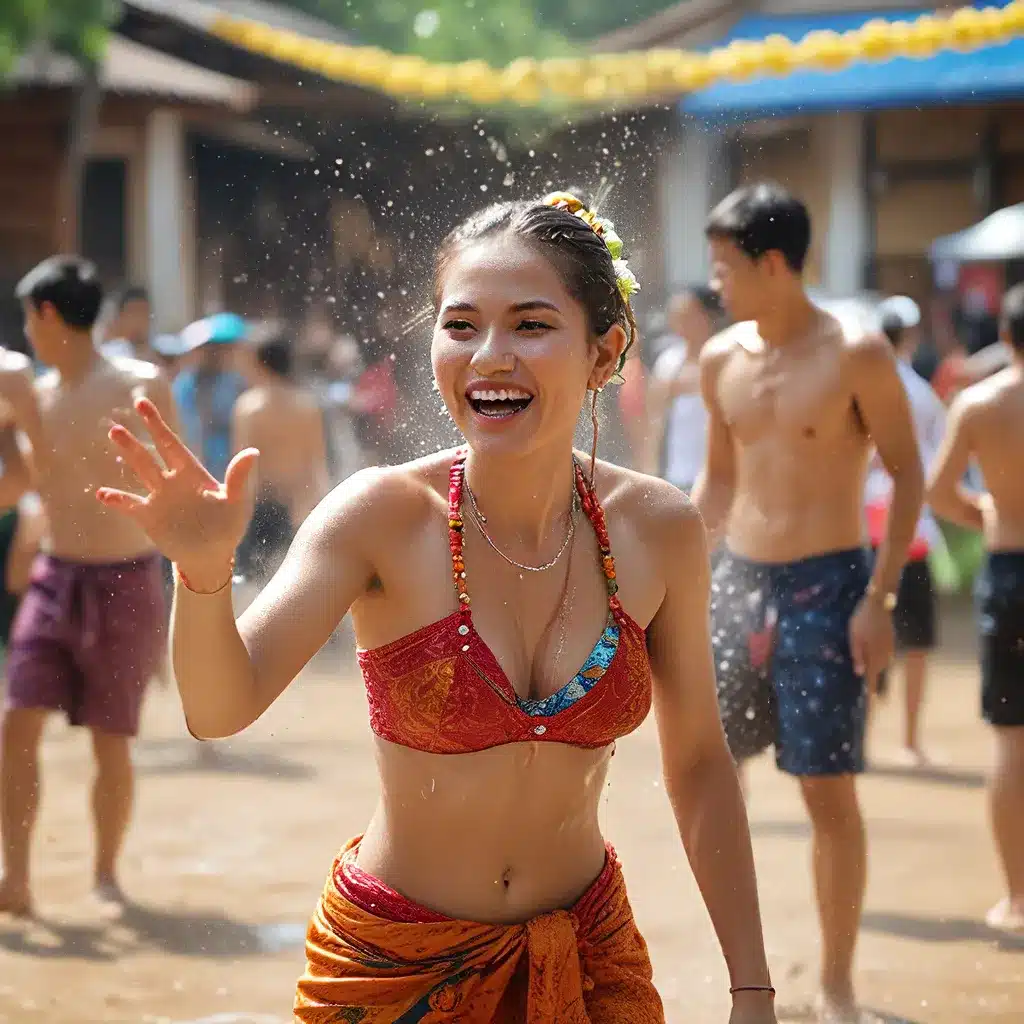Ah, Songkran – the vibrant, water-soaked celebration of the Thai New Year! As someone who’s had the privilege of experiencing this captivating festival firsthand, I can tell you that it’s so much more than just an epic water fight. Songkran is a deeply meaningful cultural event rooted in ancient spiritual traditions aimed at cleansing both the body and the soul.
Let me take you on a journey through the fascinating rituals and customs that make Songkran such a unique and revered celebration. Prepare to be immersed in the refreshing waters of renewal and transformation!
Unlocking the Symbolic Power of Water
At the heart of Songkran lies the symbolic significance of water. In Thai culture, water is believed to have a profound purifying effect, cleansing the body of bad luck and imbuing it with good fortune. During the festival, locals engage in the time-honored tradition of pouring water over Buddha statues and then using this “blessed” water to bless their elders and loved ones.
Nowadays, this ritual has evolved into the famous Songkran water festival, where people of all ages take to the streets armed with water guns, hoses, and buckets, engaging in a joyous, countrywide water fight. It’s a sight to behold – entire cities transformed into massive water parks, with laughter and good-natured splashing filling the air.
But the water festivities aren’t just about getting drenched. They’re a physical representation of the spiritual cleansing that Songkran is meant to embody. By dousing one another with water, we’re symbolically washing away the negative energies and bad luck of the past year, making way for a fresh start in the new year.
Honoring Traditions, Strengthening Bonds
Songkran is not just about water; it’s also a celebration of family, community, and unity. During the three-day festival, Thai individuals who have moved away from their hometowns often return to spend time with their close family and elders. This homecoming is a crucial aspect of Songkran, as it reinforces the importance of family and strengthens the bonds within the community.
In addition to the water festivities, Songkran also incorporates religious and spiritual rituals. Many Thais take the time to visit Buddhist monasteries, offer food and gifts to monks, and construct decorative sand stupas within the temples. These acts of devotion and reverence are a way for people to seek blessings and cleanse their spirits as they usher in the new year.
Interestingly, the clay-smearing ritual is another integral part of Songkran. Children and elders delight in smearing wet clay onto each other’s faces, reenacting the blessing of objects by Buddhist monks, who typically use chalk instead of the messy clay. This playful tradition is a testament to the inclusive and joyful nature of the festival.
Songkran’s Global Connections
While Songkran is a uniquely Thai celebration, it’s not the only culture that has a deep-rooted connection to the purifying power of water. In fact, many ancient civilizations and indigenous peoples around the world have their own water-centric festivals and rituals.
For example, the Ainu people of Japan have long practiced water purification rituals, which are closely tied to their Shinto beliefs. Similarly, the Norse mythology of Njǫrd, the god of the wind and sea, highlights the importance of water in traditional Scandinavian cultures. And in Japan, the misogi water purification ceremony is a powerful ritual that cleanses both the physical and spiritual self.
These cultural connections serve as a reminder that, at our core, we humans share a fundamental reverence for the life-giving and transformative power of water. Songkran, with its vibrant celebrations and deep spiritual roots, is just one shining example of this global phenomenon.
Embracing the Spirit of Songkran
As I reflect on my own experiences with Songkran, I’m struck by the overwhelming sense of joy, community, and renewal that permeates the festival. There’s something truly special about being part of a celebration that is simultaneously a raucous water fight and a deeply meaningful spiritual rite of passage.
Whether you’re dousing your friends with water or quietly reflecting at a Buddhist monastery, Songkran invites you to let go of the past and embrace the future with open arms. It’s a time to cleanse both the body and the spirit, to strengthen familial bonds, and to connect with the timeless traditions that have been passed down through generations.
So, the next time you have the chance to experience Songkran, don’t hesitate! Immerse yourself in the refreshing waters of renewal, and let the spirit of this captivating festival wash over you. Who knows – you might just come out feeling lighter, brighter, and more connected to the world around you.
And if you can’t make it to Thailand for Songkran, there are plenty of other opportunities to explore the universal themes of water purification and spiritual cleansing in your own cultural traditions. Perhaps a visit to a local shrine or a relaxing soak in a natural hot spring could be just the thing to help you find your own personal path to renewal.
Wherever your journey takes you, remember that the power of water to nourish, cleanse, and transform is a gift that we can all celebrate, no matter our cultural heritage. So, let’s raise a glass (or a bucket) to the enduring spirit of Songkran and all the incredible ways that water can enrich our lives.
Adam Cleaning Services is here to help you maintain a clean and rejuvenating environment, just like the spirit of Songkran. Visit our website to learn more about our comprehensive cleaning services and how we can help you achieve a fresh start.







